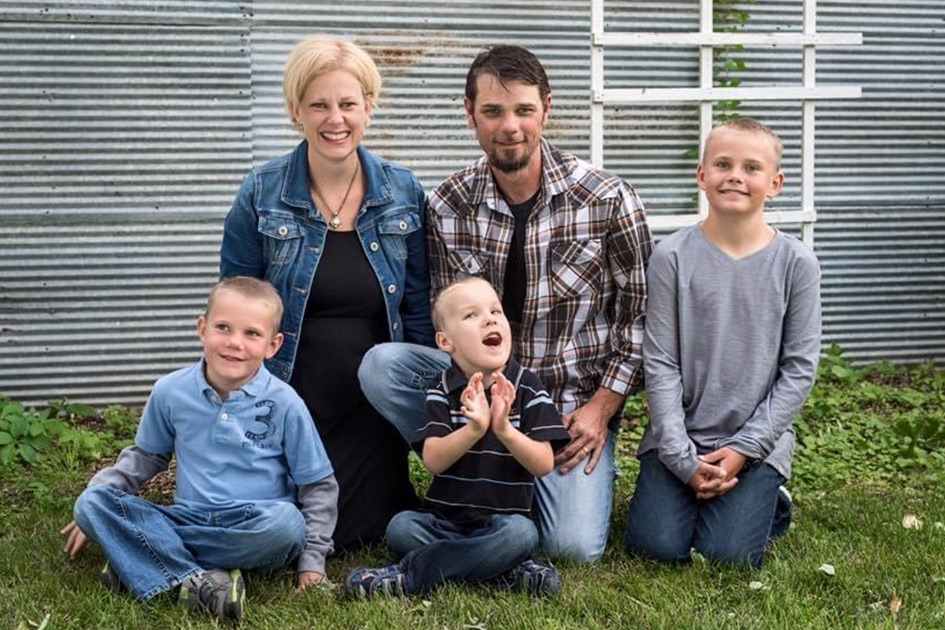Eternal toddler keeps family on its toes
Mom to 16-year-old son: Drive carefully and call me if you go anywhere after soccer practice.
Mom to 12-year-old son: Your screen time is up for today, buddy.
Mom to 9-year-old son: Underwear goes under your pants, not on top. Let’s try that again.
Any of these exchanges could take place in the Griggs household. But the third one requires some explanation. Nine-year-old Gage was born with a rare chromosome deletion and autism, which generates some especially interesting conversations.
Because of his condition, what comes naturally to most kids needs to be taught to Gage, again and again. For example, as an infant, the instinctual process of taking milk—sucking, swallowing and breathing—wasn’t wired into Gage’s brain. Consequently, his lungs continually filled with milk and he developed pneumonia.
Fast forward to today. Gage is 9 but will likely always function like a toddler. He is non-verbal so he finds other ways to communicate. “Some people see Gage’s challenges and think he’s somehow suffering. But he’s never known anything different and he’s happy and content,” says mom, Janelle.
Fargo helps
Janelle credits quality health care and services available in Fargo for helping get a relatively early diagnosis (before Gage’s first birthday) and the services and therapy he needs. Still, the challenges are enormous.
For Janelle and others in similar circumstances, caregiving responsibilities are incessant.
Gage’s daily care and constant supervision are the baseline. Coordinating all his services presents a whole new level of demands.
“There’s so much paperwork and so many moving pieces… working with the school, state services, and all the different therapies (physical, occupational, speech and behavioral), not to mention juggling a full-time job and the rest of the family,” says Janelle. “You get in a rhythm, then one seemingly slight change sends everything into a tailspin, and you need to start from scratch. It could be as simple as a schedule change or new policy at school. It could be a therapist leaving, or a new manager for me at work.” As you would imagine, COVID also exacerbates the challenges.
Because of the constant demands, many caregivers’ social connections fade and friendships erode. That leads to isolation, loneliness and often suicidal thoughts. According to the Centers for Disease Control, in August 2020, 31% of unpaid caregivers reported suicidal ideation in the past 30 days (compared to 3% of the general population).
Janelle can relate. “Sometimes it feels like I have PTSD resulting from the times it was so scary,” she says. Luckily, she has the wherewithal to reach out to her family doctor to help maintain her mental health.
Janelle has learned to be purposeful about self-care. Her toolkit includes:
- Nonnegotiable exercise time at the gym
- A “really healthy” diet
- Nutritional supplements
- Regular visits and preventive care from both a family practice MD and a naturopathic provider
- Daily gratitude journaling
- Help navigating the health care system from the Member Advocacy team at BCBSND
Her older boys and husband are an important part of the equation. “My boys are compassionate, empathetic and kind, largely due to the life they have led,” Janelle notes.
Her advice to other caregivers (in addition to self-care): “Pick your battles. Appreciate the small things. Be quicker to grant grace to others.”
Learn more about health risks associated with caregiving, and resources to help building your own toolkit.
